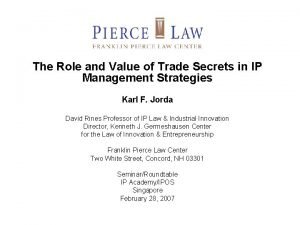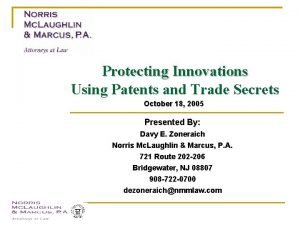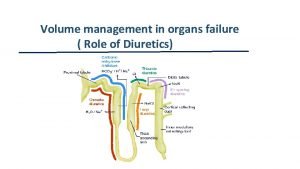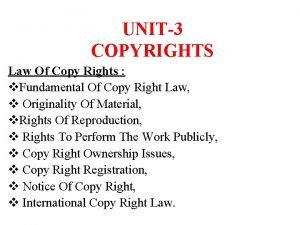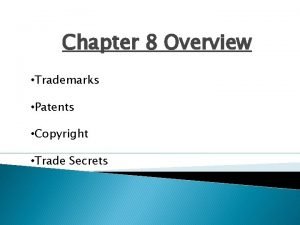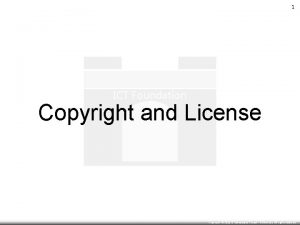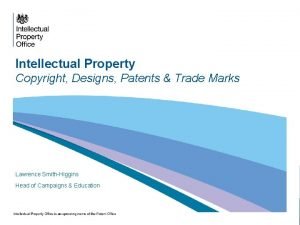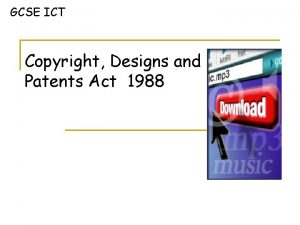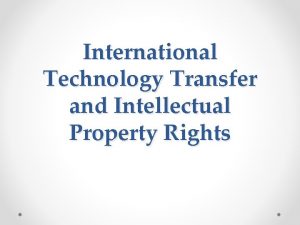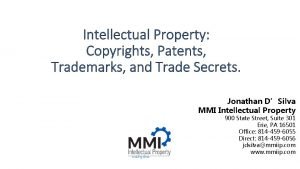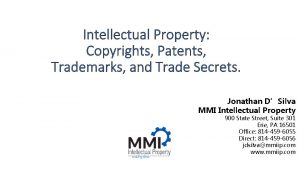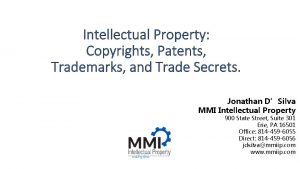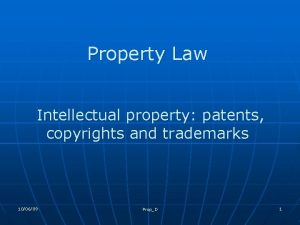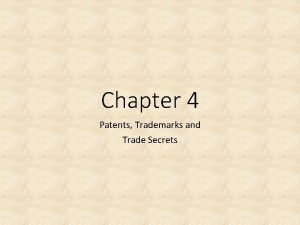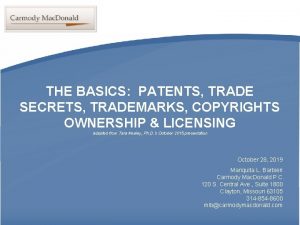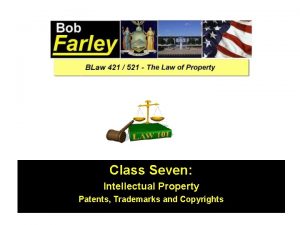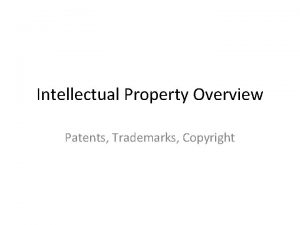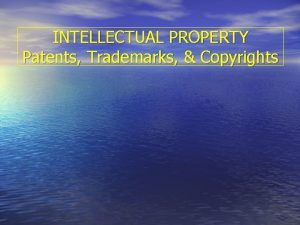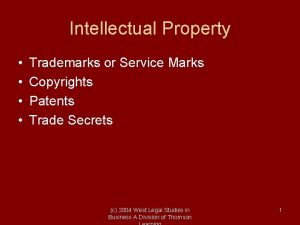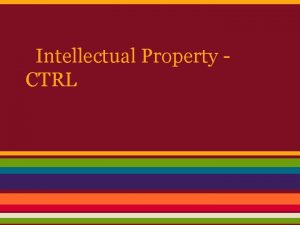Intellectual Property Copyrights Patents Trademarks and Trade Secrets















- Slides: 15

Intellectual Property: Copyrights, Patents, Trademarks, and Trade Secrets. Jonathan D’Silva MMI Intellectual Property 900 State Street, Suite 301 Erie, PA 16501 Office: 814 -459 -6055 Direct: 814 -459 -6056 jdsilva@mmiip. com www. mmiip. com

Copyright Notice Copyright © 2017 D’Silva Law Group, PLLC All Rights Reserved All materials contained herein are protected by United States copyright law and may not be reproduced, distributed, transmitted, displayed, published, or broadcast without the prior written permission of D’Silva Law Group, PLLC, d. b. a. MMI Intellectual Property. The information contained in this presentation is for informational purposes only. These materials should not be viewed or interpreted as providing legal advice. Please consult an attorney concerning your own situation. Use of this presentation or related content should not be construed as created an attorney-client relationship.

Trademarks

What is a Trademark (TM) or Service Mark (SM) ? • Word, name, symbol, or device, or combination • That is used or has a bona fide intention to use • In commerce • To distinguish the source of goods or services • Registration is NOT required – use ™ or SM for unregistered marks • ® May only be used for marks registered at the USPTO • Trademarks and Service Marks are treated identically under the law (with some minor differences for federal registration process)

Trade Names and Corporate Names • Trade Names identify a business. • Corporate Names identify the name under which a business has been incorporated. • Trade Names and Corporate Names may be used as Trademarks but are not by themselves Trademarks.

Creating Trademarks • Choose word, symbol, logo, design or combination not confusingly similar to any used by others. • Consider appearance, pronunciation and connotation of the marks in question. • Consider the lines of commerce, the customers for which the goods or services are sold. • Be careful of dilution of famous marks. • Registration is NOT required to create a trademark.

Establishing Trademark Rights • Specifically tied to the goods or services sold under them. • Limited in geographic scope to the areas in which they are used. • Used on the products sold, labels, and packaging. • Used at the point-of-sale on catalogs, price lists, and web sites. • Use in advertising counts only for services.

Classification of Trademarks • Arbitrary and Fanciful • Suggestive

Classification of Trademarks • Descriptive • Generic MILK

Registration • Registration is NOT required– use ™ or SM for unregistered marks • ® May only be used for marks registered at the USPTO • State registration available for marks not used in interstate commerce

Federal Registration ® • Must be used in interstate commerce • Offers nationwide constructive use and notice • Allows for the possibility of achieving incontestable status • Presumption of ownership and validity • The ability to bring an action in federal court • Registration information can be used as basis to obtain foreign registration

State Registration ™ • Must be used in commerce within the State • Does not offer the same extent of remedies as a federally registered mark • Provides notice of use within the State

Common Law Trademark ™ • Trademark protection only from the geographic area in which the mark is used. • Marks in use earlier in time have superior rights to newer marks in those areas in which the marks are used.

Infringement • Court can order impounding of articles sold under the allegedly infringing trademark. • If infringement is proved the court can order the destruction of the articles. • Trademark owner is entitled to recover either: • Actual damages and lost profits. The court may treble this if willful infringement is found. • Statutory damages of not less than $500 or more than $100, 000 per counterfeit mark per type of goods or services sold. • Court may award attorney’s fees and costs.

Defenses to Infringement • Crowded Field of Marks • Descriptive Marks • Prior Use • Lack of Confusion • Registration
 Trade-related aspects of intellectual property rights
Trade-related aspects of intellectual property rights Trade secrets examples
Trade secrets examples Trade secrets examples
Trade secrets examples Trade secrets outline
Trade secrets outline Definition of trade secrets
Definition of trade secrets Copyrights
Copyrights Copyrights
Copyrights First sale doctrine copyright
First sale doctrine copyright Copyrights
Copyrights Copyrights
Copyrights Advantage of patent
Advantage of patent What is the copyright designs and patents act 1988
What is the copyright designs and patents act 1988 Copyright designs and patents act 1988 examples
Copyright designs and patents act 1988 examples Advantages and disadvantages of patents
Advantages and disadvantages of patents Secondary infringement
Secondary infringement Importance of intellectual property
Importance of intellectual property

